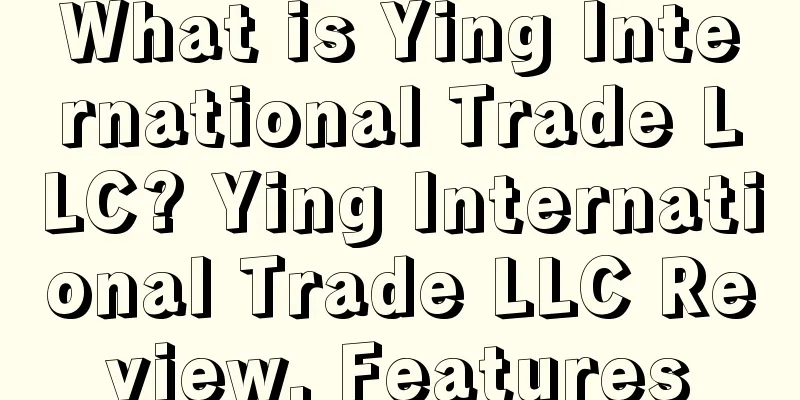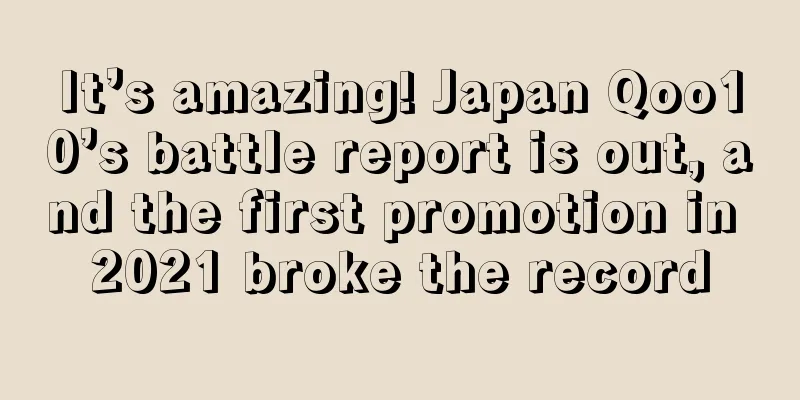Due to tight funds, Shenzhen Dama issued an "asset-to-debt agreement"

|
Not long ago, a major seller in Shenzhen informed its suppliers that it would use inventory to pay for goods. Recently, Yien learned from several manufacturers that the seller had provided an agreement that detailed the use of inventory to pay for debts. Some manufacturers received the goods after signing the agreement, while some companies refused to accept the payment due to the large amount of money and have filed a lawsuit.
The big seller issued an "asset-to-debt settlement agreement"
In March 2021, a leading seller in Shenzhen signed a supply contract with a factory in Yiwu, agreeing that the latter would produce pet supplies for it and pay 30 days after the goods arrived at the warehouse. Unlike ordinary supply, in addition to the payment period for the goods, this time the supplier also needs to bear the cost of purchasing accessories first.
"We need to outsource one of the parts. They provide the supplier and we pay for it, and then the payment is included in the account. We purchase the parts on our own, and the freight is also handled in the same way." He Xu, the person in charge of the supplier , said that it was originally agreed that the seller would pay for the freight, but later the other party used the reason of delayed delivery to make his company responsible for the delivery and included the freight in the account. "It means that he didn't pay a penny for the whole batch of goods. "
But after the goods were delivered, this big customer did not pay the payment on time.
"The order was placed at the end of March, and we shipped the goods to them at the end of April. According to the contract process, we should have received payment at the end of May, but we have not received it yet. We received payment once in September and once in November, which was only more than 10,000 yuan. " The big seller was handling goods worth hundreds of thousands of yuan. Every time he received a reminder for payment, he would change a colleague to handle it, and the payment cycle was constantly extended. He Xu's company refused to supply him again because he was seriously in arrears with the payment during the first cooperation.
Soon, hundreds of accounts of the seller were blocked. As sales shrank, He Xu's company had no hope of getting the money back. He considered taking legal action, but the company had signed a contract with the seller's Hong Kong parent company, and the cost of suing was high. After the lawsuit, he might not get the remaining money back, so he had to put it on hold for the time being.
It was not until the end of August this year that the company received a notice from a salesperson, saying that he would use inventory to pay for goods, and sent a "asset-debt settlement agreement." But this strong agreement made He Xu nervous. "The contract had several unfair clauses, and we didn't dare to sign it. We were worried that he would not deliver the goods, and we would not get the goods even if we signed it."
After signing the agreement, all debts owed by Party A (seller) to Party B (supplier) shall be deemed to have been fully repaid, and Party B shall no longer claim any debts from Party A, including interest, liquidated damages, etc. Otherwise, Party B shall pay Party A 20% of the value of the goods used to offset the debt as liquidated damages.
In addition, the goods are delivered in their existing state and the seller has no obligation to guarantee their quality; the debt-offsetting goods are picked up and transported by the supplier at its own expense, and the latter needs to pick up the goods after receiving notification from the seller. If the agreed period of 7 days is exceeded, the storage costs incurred shall be borne by Party B.
He Xu knew very well that according to the seller's current situation, he would not get his money back, so he might as well take back some of the goods. He could make some profit by consuming them himself and avoid a total loss. "If I don't take some goods, I'll be left with nothing if the seller goes bankrupt one day." However, the experience of being delayed in payment for more than a year made him feel insecure, and it was difficult for him to judge whether this was a "reliable" plan, so he began to inquire from various sources.
Before He Xu, some suppliers had already received notices that some manufacturers were owed large amounts of money, and had no suitable products to choose from and no secondary sales channels. They could only take legal action and take the case to court.
In the past year, the seller has faced several sales contract disputes. For example , at the end of May this year, Yiwu Electronics Co., Ltd. sued the subsidiary of the seller for ordering flashlights from it on January 13, January 29, February 20 (twice), and April 7, 2021, with the value of goods being 12,320 yuan, 15,246 yuan, 83,875 yuan, 83,875 yuan, and 133,056 yuan respectively. The two parties agreed to pay the payment monthly. However, after paying 42,320 yuan, the seller has not paid the remaining payment so far.
Considering the cost-effectiveness of the lawsuit, some suppliers could only accept the proposal of compensation. Wang Ying's company had more than 60,000 yuan in outstanding payments, and she planned to use some inventory such as cups as employee benefits. "It's better to have something to compensate than nothing. Their prices are high, so I can't get much." Another supplier still had several thousand yuan in payments, so he exchanged for a batch of masks.
Although you can choose the compensation products you want, there are not many types to choose from. In the end, He Xu chose the inventory that is closer to his own product line. Now that the goods have been received, the company will retail these stocks in the domestic market or sell them to B-end overseas, which can be worth 70% to 80% of the payment.
To reduce risks, suppliers " check " sellers' stores
In the past two years, suppliers have been owed money for goods. Especially since this year, such incidents have become more frequent. Affected by the account suspension wave, some industry leaders have suddenly reduced their demand for goods, and due to capital turnover problems, it is difficult for them to pay suppliers on time.
Some of the top sellers are in arrears of payment to suppliers due to operational difficulties. Not long ago, Dongguan Cooper issued a notice of suspension of business, stating that one of the specific reasons for the suspension was that many cross-border e-commerce sellers owed them money, and a large number of finished products were piled up in warehouses, creating a vicious cycle.
Cooper was owed money by multiple cross-border e-commerce sellers, including the industry's biggest seller, Zebao. Shortly after Zebao defaulted on Cooper's payments, its parent company, Xinghui Precision, was sued for more than 50 million yuan by another supplier, Yafu Electronics, for defaulting on payments.
While the giant headphone manufacturers are being delayed in payment, there are thousands of suppliers like He Xu who are experiencing the same thing. They may not have attracted attention, but when the storm comes, they are also swept up in it and move forward with heavy burdens.
Due to the frequent occurrence of bankruptcies, major suppliers have become cautious and started to shorten the payment period for cross-border sellers. Previously, suppliers in the industry generally gave sellers a payment period of 1-3 months, but now, suppliers rarely give such a payment period.
He Xu said frankly that as a supplier, we currently only give some credit terms to old customers. When cooperating with new cross-border sellers, we basically do not give credit terms . After cooperating 1-2 times, we will consider whether to give credit terms.
In addition to the payment period issue, in order to reduce risks, He Xu will also "pay attention" to the cross-border sellers he cooperates with. He will check the sellers' stores to understand their business conditions. After the supplier shortens the payment period or does not give payment period, it may become more difficult for some small and medium-sized sellers to obtain goods.
Whether it is the suppliers being owed money or the current situation of cross-border sellers in getting goods, it may be related to the Amazon account blocking trend. This rectification action that has set off a huge wave in the industry has obviously hurt the sellers and also hurt the suppliers. Debt Disputes Shenzhen big seller |
<<: U.S. second-largest port sees weak container traffic
>>: 81% of European and American consumers believe that online retail is the future trend
Recommend
Amazon recalls baby bath chairs made in China
The U.S. Consumer Product Safety Commission (CPSC...
AliExpress launches JIT service after receiving an order
On February 10 , AliExpress , known as one of the...
What is Socialadscout? Socialadscout Review, Features
Socialadscout is a social ad monitoring tool that ...
Amazon updates software sales policy, Ever Given cargo ship leaves Suez Canal
Amazon updates software sales policy On July 8, A...
What is Labuan FSA? Labuan FSA Review, Features
<span data-docs-delta="[[20,{"gallery"...
At the beginning of 2025, multiple platforms started a "war for Chinese sellers"!
As Chinese sellers play an increasingly important...
Winter products are about to hit the sales peak!
Winter in China came unexpectedly, and the temper...
What is Tonik Bank? Tonik Bank Review, Features
Tonik Bank is Southeast Asia’s first digital-only...
Over 200 million packages were stolen, here’s the secret to preventing package thefts on Christmas!
According to the survey data of the home security...
Another cross-border company is rushing for IPO!
For companies that have developed to a certain le...
Amazon fined 3.2 million euros in Spain for illegal employment
According to foreign media reports, for violating...
180 accounts of Shenzhen sellers were blocked and 140 million yuan of payment was frozen
Some time ago, many big sellers in the industry w...
What is OCS Logistics? OCS Logistics Review, Features
OCS (Overseas Courier Service; OCS Logistics (Shan...
Snowstorm hits western U.S., more than 800 flights canceled
Last week, the United States began distributing $...
In 2020, CoolBlue, the second largest e-commerce company in the Netherlands, had a revenue of 2 billion euros
According to foreign media reports, CoolBlue , th...









